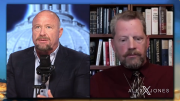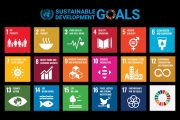
On Wednesday, Ukrainian President Volodymyr Zelensky alleged that he had not actually attempted to meet Chinese Premier Li Qiang at the World Economic Forum (WEF) gathering in Davos this week.
The Chinese premier is not the person making decisions in China, Zelensky posited, implying Li was not a noteworthy official to be worth meeting altogether.
“There is a Chinese Premier — then our prime minister will meet with him. I would love to meet with the leader of China. As far as I know, [in China] Xi Jinping makes decisions, and in Ukraine, I make decisions. I don’t need just any dialogues; I need important decisions from the leaders who make these decisions,” Zelensky declared.
Zelensky’s snub came amid an earlier Politico report that same day suggesting the Ukrainian president wanted to meet Li at the WEF forum, but the Chinese side declined Zelensky’s request.
A senior U.S. official told Politico that “Beijing rejected Kyiv’s request for a meeting at some point during their mutual Swiss visits,” while another American official said that China has excluded any “diplomatic encounters” with Ukraine at Russia’s behest. A Ukrainian official alleged that no meeting between Li and Zelensky was ever planned. Thus far, Beijing has neither made any comments regarding the prospect of any high-profile meetings between Chinese and Ukrainian leaders, nor responded to Zelensky’s remarks.
However, several days beforehand, Ukrainian official Andrey Yermak had admitted that talks with China would be essential to promote Kyiv’s controversial “peace plan.”
News of Li’s apparent snub was perceived by observers to be a setback for Zelensky, after envoys from 83 countries congregated in Davos to discuss Kyiv’s 10-point proposal to end the conflict in Ukraine. For its part, China did not send a representative to the talks, which ended without a joint communique being issued.
Speaking to reporters after the discussion concluded, Yermak, the head of Ukraine’s presidential office, said that Kyiv would “find ways to work with China” on the “peace plan,” before hinting that Zelensky and Li would meet when the WEF’s annual summit began the following day.
Zelensky and Li had “ample opportunity” to talk this week, Politico noted. However, Zelensky traveled back to Ukraine on Tuesday, after threatening Russian President Vladimir Putin’s entire family with “criminal trials” and long prison sentences, as well as demanding more arms and ammunition from Kyiv’s Western backers.
The Russian leader is “the sole reason why various wars and conflicts persist” and he must be held accountable so his “aggression” doesn’t embolden other “autocracies,” Zelensky claimed.
“Yes, we are not terrorists, and therefore these will be criminal trials,” after which Putin and his entire family would spend “a long, multi-year vacation” behind bars, he added.
On his end, Li focused his speech to the WEF on economic issues, promoting China as a profitable destination for foreign investment.
Zelensky’s “peace plan” suggests that Russia pay reparations, surrender its officials to face war crimes tribunals, and reinstate Ukraine’s 1991 borders. This contentious 10-point proposal list, which has been promoted by Zelensky among Ukraine’s partners for about a year already, effectively insists on Russian capitulation. The Kremlin has dismissed such a plan as “absurd,” with Russian Foreign Minister Sergey Lavrov lambasting it recently as a publicity stunt and “a figment of a sick imagination.”
Swiss Foreign Minister Ignazio Cassis, who chaired a WEF discussion on January 14, also denounced Zelensky’s plan. Speaking to reporters on the fringes of the meeting, Cassis said that “Russia will have to be included” for any talks to succeed in ending the conflict, highlighting that “there will be no peace without Russia’s word.”
Early last year, China unveiled its own 12-point peace roadmap, calling for a ceasefire, peace talks, an abandonment of the “Cold War mentality,” an end to sanctions, and a boost of global economic stability and international supply chains. Moscow welcomed the Chinese plans, while Kyiv, the United States, and its allies disavowed them.
Along with White House National Security Advisor Jake Sullivan, U.S. Secretary of State Antony Blinken met with Zelensky on January 16 on the sidelines of the WEF meeting. Blinken started the talks by conveying U.S. President Joe Biden’s “strong, enduring support for Ukraine.”
“We are determined to sustain our support for Ukraine and we’re working very closely with Congress in order to work to do that,” the top U.S. diplomat said. “I know our European colleagues will do the same thing.”
Next, Blinken tried to reassure Zelensky that Washington will continue to fund Kyiv’s conflict with Russia, despite struggles to obtain congressional approval for the latest aid package.
The White House confirmed last week that Washington had run out of funding for Kyiv after burning through $113 billion in previously authorized spending. Biden adapted his rhetoric on the Ukraine crisis last month, saying his administration will back Ukraine “as long as we can,” instead of using his oft-repeated vow of “as long as it takes” to secure victory.
Washington is by far the largest sponsor of the Ukraine conflict, which some U.S. politicians have alluded to as a “proxy war” with Russia. Republican critics have argued that Biden lacks a strategy for victory in Ukraine and is only prolonging the fighting by continuing to send arms and money to Kyiv.
Notwithstanding the partisan divide in Washington, Zelensky thanked the Biden administration and U.S. lawmakers for their “bipartisan support.” He added, “You mentioned Congress. We really count on your support, continuing your huge support.”
Sullivan claimed that the United States and its allies are determined to ensure that “Russia falls and Ukraine wins.” The latest EU aid package for Ukraine, worth €50 billion ($54.6 billion), also has stalled after Hungarian Prime Minister Viktor Orbán vetoed it in December.
Ukrainian Foreign Minister Dmitry Kuleba warned in an ABC News interview on Monday that “time is running out” for U.S. legislators to authorize more aid to Kiev. Kuleba repeated a claim that Washington must support Ukraine to avoid having to mobilize its own troops in a direct conflict with Russia.




